Tryst with Destiny Speech For Children and StudentsIntroductionFollowing 200 years of British colonial control, this address was given to an independent India. For the country, this was a proud moment. The people had to endure a lot of hardship to attain this independence. Gandhi's introduction of the nonviolence tenet made the cause more successful. 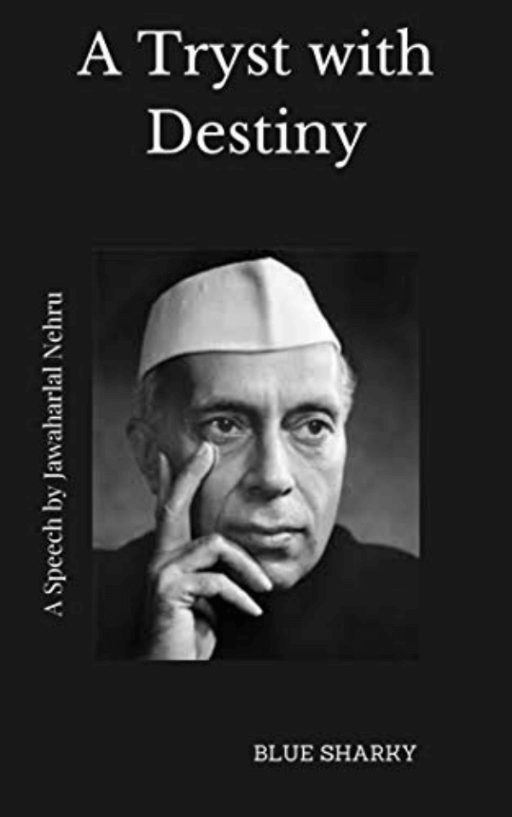
India spearheaded several independence movements, but the brutal British Army put them down. However, following the Second World War, things drastically changed. A sizable army was stationed in the west since more men were needed for the conflict. The stability of colonial control began to erode as a result. The large country was divided into India and Pakistan on August 14, 1947. Gandhi opposed the idea of dividing India and Pakistan, although he subsequently consented to it. And as a result, New India achieved successful independence, offering Nehru the chance to give his "Tryst with Destiny" address. About the AuthorJawaharlal Nehru's August 14, 1947, "Tryst with Destiny" address to the Constituent Assembly has been quoted several times in the seventy-five years since it was first heard. 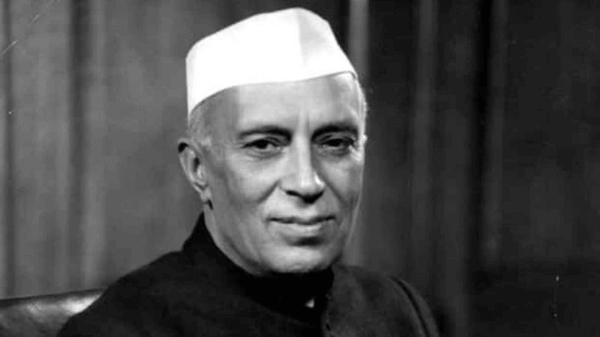
The speech's words are incredibly straightforward, denoting both a conclusion and a commencement. A listener is nonetheless moved by them as they serve as a reminder of the energy, struggles, and tales that have helped India become an independent nation. As the first prime minister of India and a significant participant in the country's struggle for independence, Jawaharlal Nehru was also referred to as Pandit, which is Hindi for "teacher." Nehru was born in Allahabad, India, in 1889. Major Aspects of the SpeechHe frequently brings up India's struggles throughout his speech. He also makes notice of the brave freedom fighters who gave their lives to ensure India's independence. He implies that India has to be rebuilt in the light of what the British did to "her". That is accurate. Jawaharlal Nehru referred to India as "her" to personify the country. Then he discussed the path to victory. The speech's main focus was on issues of ignorance, poverty, and health. Nehru aimed to restore India's former splendor and needed the people's assistance to do it. His use of "We" and "Us" throughout his address demonstrates the country's cohesiveness. The individual male Mahatma Gandhi, The Father of Our Nation, was a subject that Pt. Nehru is frequently discussed. The Greatest Man of Their Generation, as he calls him. He discusses Gandhi's approach to achieving an independent and unified India. Nehru also discusses resolving issues relating to race, caste, religion, and creed while bringing everyone together in an inclusive environment. He also refers to Pakistan's citizens as his brothers and sisters. He ends by introducing The New India to the globe and warmly welcoming everyone. He pledged to work tirelessly and with the utmost sincerity to improve the nation. Jai Hind, he exclaimed as he concluded his speech. Being a part of a country with such a rich history and character should make us proud. Thanks to these freedom fighters, we can appreciate the India we presently live in. I now draw to a close my remarks. "Long Live Our Nation, Jai Hind" Praise Of Mahatma GandhiThe mention of Mahatma Gandhi is one thing that will grab the attention of everyone who is at least somewhat familiar with Indian history. It's incredible that during the whole speech, Nehru never uses his name. Mahatma Gandhi is hailed by Nehru as the greatest man of his age. As a result, in his address, Nehru accords Gandhi a very high and unique rank. 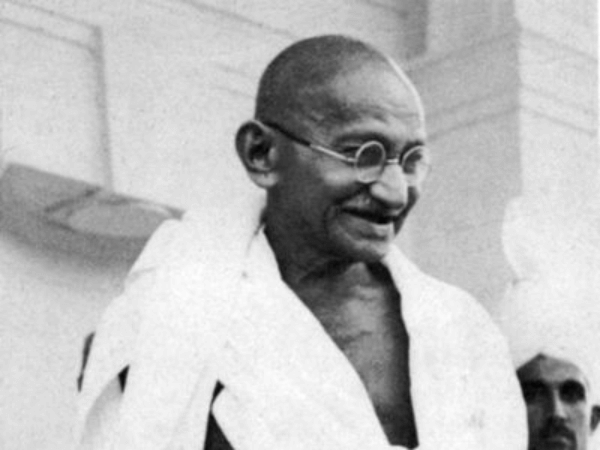
Jawaharlal Nehru once again praises Mahatma Gandhi as the architect of this freedom. As the father of the nation, he also refers to him. Nehru claimed that Gandhi is a live illustration of the ethos of old India. SummaryAs India's first prime minister, Jawaharlal Nehru left a lasting legacy as a statesman that is crucial to the advancement of the nation. He developed India's foreign policy while serving as the country's head of state and never stopped promoting the development of science and technology. Despite being a lawyer by profession, Nehru was an expert in most disciplines. The Indian people revered him for his extensive knowledge and referred to him as " Pandith Nehru ". August 15 1947 saw India gaining its independence from England. Nehru joyfully declared to the entire world that India had achieved its goal of independence at precisely midnight. The old tricolor national flag was lowered and replaced with the new one during the festive event that took place in New Delhi. Following it, Nehru gave a famous speech known as "Tryst with Destiny." 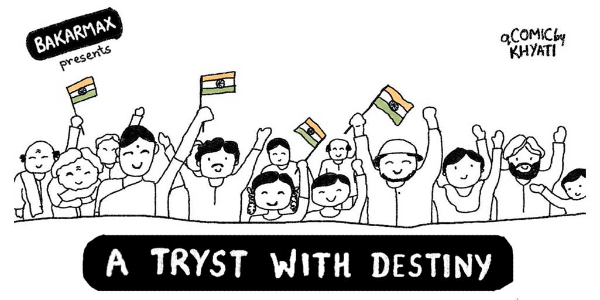
In his opening remarks, Nehru spoke about the promise made by Indians many years ago to secure freedom for their country. The nation's long-suppressed spirit has at long last found freedom. Nehru urges India's citizens to commit their lives to serving both their country and all of humanity. On August 15, 1947, India became a new country in the wee hours. The long and tremendous sacrifice made by freedom warriors over many generations is what made this triumph possible. Nehru believed that the people of India would draw courage from the values of the past. The achievement commemorated on August 15 provides a chance for greater achievements in the future. He challenges the people of India to take up this responsibility and work for India's future generations. Nehru reminds the Indian people that freedom and power come with responsibility. India used to rely on England for leadership and direction prior to 1947. India is now its own master, thanks to 1947. The nation must make independent judgments, grow from its mistakes, and move ahead. India has to develop into a mature, intelligent nation that serves as an example to other countries. 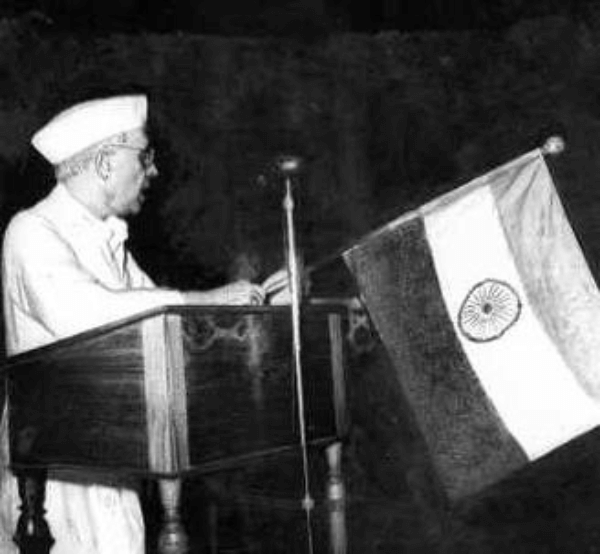
According to Nehru, all Indians should put forth significant effort to advance their beloved country. Giving to India means supporting the many millions of underprivileged citizens who suffer there. According to Nehru, it is now time to concentrate on the future because the past is already history. To the advantage of the next generations, we must make the required efforts. In order to make the nation's goals a reality, Nehru encourages the populace to toil and toil hard. Nehru claimed that those objectives applied not only to India but to the whole earth. The world's nations are interconnected on a global scale. Living alone is impossible for anyone. Everybody has the right to a peaceful, liberated, and abundant life. Nehru cautions the populace that since the world cannot be separated into little, isolated parts, a calamity in one area of the world can have an impact on everyone else. ConclusionThe fact that the word "tryst" refers to a planned encounter between lovers demonstrates how passionate and devoted Nehru must have been to both India and the struggle for its freedom. Nehru recognizes his accomplishment in attaining freedom and his influence as prime minister, but he does not minimize the responsibility that comes with it. As the generally acknowledged heir of Mahatma Gandhi, Nehru had a responsibility to resolve these concerns because he was elected at a period of intense religious conflict in India. Although the entire speech was made in English, Nehru also focuses on his heritage by concluding with the phrase Jai Hind.
Next TopicVerity Summary
|
 For Videos Join Our Youtube Channel: Join Now
For Videos Join Our Youtube Channel: Join Now
Feedback
- Send your Feedback to [email protected]
Help Others, Please Share









